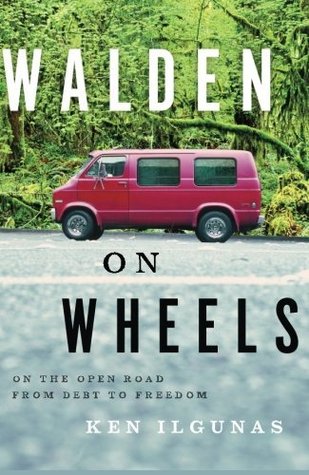More on this book
Community
Kindle Notes & Highlights
by
Ken Ilgunas
Read between
July 29 - August 2, 2020
I’d once heard that we are nothing but our stories. Forget the blood and bones and genes and cells. They’re not what we are. We are, rather, our stories. We are an accumulation of experiences that we have fashioned into our own grand, sweeping narrative.
· Flag
Mingjia Wang
Stare—really stare—into the womb of creation, and it will be impossible to dedicate your life to mindless accumulation. When you see the aurora, the only logical choice you can make is to spend the rest of your life seeking the sublime.
Life is simpler when we feel controlled. When we tell ourselves that we are controlled, we can shift the responsibility of freeing ourselves onto that which controls us. When we do that, we don’t have to bear the responsibility of our unhappiness or shoulder the burden of self-ownership. We don’t have to do anything. And nothing will ever change.
In the 1930s, Americans hopped trains. In the 1950s, beat poets wrote about road trips. In the 1960s, we hitched rides. Today, however, it seems like the whole “coming of age” adventure has been abridged from a young person’s life experience, leaving no gap, no bridge, no moment of real freedom in between school and career.
“He who works with his hands is a laborer. He who works with his hands and his head is a craftsman. He who works with his hands and his head and his heart is an artist.”
When we accept a gift, I thought, sometimes we don’t just acquire a debt but an identity. Taking a gift can be like taking a sizzling-hot brand to the backside. The giver gives us a marking, a bubbling scar that only the brander and branded can see. It’s a mark of dependence.
If we put a man in a country club, he’ll suddenly feel the need for a yacht. But if we put him on a solitary island, his only desires will be those essential to his survival.
Discomforts are only discomforting when they’re an unexpected inconvenience, an unusual annoyance, an unplanned-for irritant. Discomforts are only discomforting when we aren’t used to them. But when we deal with the same discomforts every day, they become expected and part of the routine, and we are no longer afflicted with them the way we were.
We need so little to be happy. Happiness does not come from things. Happiness comes from living a full and exciting life.
These are society’s definitions of poverty and wealth: To be poor is to have less and to be rich is to have more. Under these definitions, we are always poor, always covetous, always dissatisfied, no matter the size of our salary, or how comfortable we are, or if our needs are in fact fulfilled.


